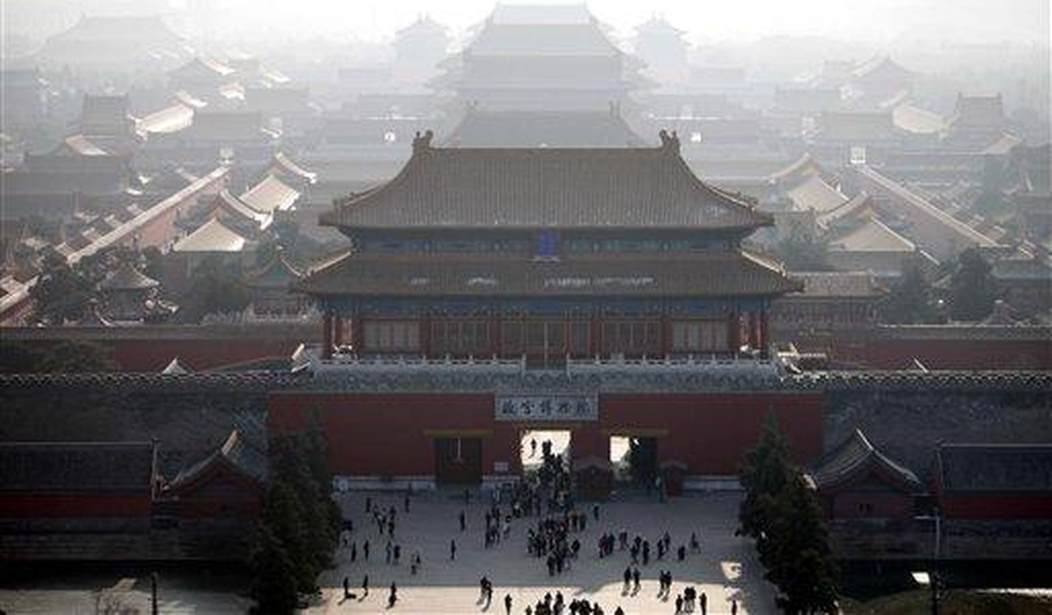Top News
Burdened with hidden debt, Chinese cities embrace a ‘fines economy’ to stay afloat

China’s zero-COVID policy ended pretty suddenly last December but while it was in place cities around the country were forced to spend trillions on Xi Jinping’s strict testing regime and constant lockdowns. Much of this was so-called hidden debt which these cities are still dealing with in the form of huge debt service payments. In response they have been forced to cut pay and services and make other adjustments.
“Beijing is facing an economic minefield of its own making,” said Craig Singleton, senior fellow for the Foundation for Defense of Democracies in Washington. “All told, China’s current debt crisis represents a perfect storm.”…
Last year, a number of cities suspended bus services due to budget constraints, including Leiyang in Hunan province and Yangjiang in Guangdong, according to operators’ announcements…
Public sector jobs, considered the most securein the country, were also affected elsewhere. In June, several wealthy eastern provinces — including Guangdong, Zhejiang and Jiangsu -— slashed pay by as much as 30%, according to Chinese news website Caixin.“China’s runaway local debt poses a serious threat to the country’s overall economic health and will weigh heavily on China’s still-nascent recovery,” said Singleton.
Officially, local government debt reached $5.2 trillion last year but that doesn’t include hidden debt which is not listed on the balance sheet. Bloomberg had a good description of how this works in a story published a few months ago:
At the heart of China’s debt crisis are so-called local-government financing vehicles, which were created to fund infrastructure by skirting limits on municipal authorities selling bonds in the market. However, LGFVs rarely generate enough returns to cover their obligations, meaning most rely on methods including refinancing and injections of municipal funds to stay solvent, which are now drying up. Rolling over debt is also getting harder as investors are more cautious.
Money owed by LGFVs is known as “hidden debt” because it doesn’t appear on governments’ balance sheets. The issue has grown into a major risk for the Chinese economy and is also a big concern for investors who have bought bonds sold by such firms.
So on top of the $5 trillion in on-the-books debt, there is an estimated $9 to $12 trillion in hidden debt. The central government’s response to this crisis has been blunt. The Ministry of Finance told local authorities earlier this year, “If it’s your baby, you should hold it yourself.” In sum, no one is coming to bail these municipalities out.
What are local governments to do when they spend massively on national mandates and have no power to raise taxes? CNN reports many have resorted to what is being called a “fines economy,” which is exactly what it sounds like. Local governments can’t raise taxes but they can fine you for anything and everything you do. Willy Lam of The Jamestown Foundation explained it this way: “Half of the income generated by local governments is used to pay the interest on their debt. They have to grab every means to get money: hence the harsh fines on restaurants and other companies.” Here’s what that looks like in practice.
In June, three restaurants in Shanghai were fined 5,000 yuan ($685) each for serving shredded cucumber on top of cold noodles without a license, triggering an uproar…
In May, truck drivers in the central province of Henan questioned the accuracy of weighbridges, used to check vehicles and their loads, after they were repeatedly fined for exceeding limits, according to state-owned news outlet Jiemian.
One driver complained that he had received 58 tickets within two years, totaling 275,000 yuan ($37,687)…
Last year, officials in the southern city of Huizhou were found by central government inspectors to have fabricated evidence so they could impose heavy penalties on a trucker for dumping construction waste, according to an article posted on the central government’s website.
These are isolated cases but CNN reports 15 cities in China have seen an increase in fines of 100% or more since 2021. So, at a moment when the economy is already under stress, business owners will keep getting hit with random and possibly fraudulent fines by cities desperate to balance their books.
Read the full article here


















